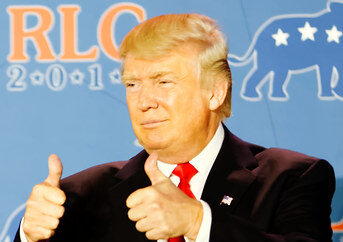President Donald Trump gave a commencement address at the United States Military Academy at West Point on Saturday. He told the cadets they were the first to serve in a “golden age” of the nation due to his efforts to rebuild the military and reshape American society. Trump emphasized his agenda to remove diversity, equity, and inclusion programs from the government, military, and many parts of American life.
He said this made the nation worth fighting for again. The president claimed he built the military “better than ever before,” improving recruitment, morale, and focus on protecting America first. The crowd applauded at times, such as when Trump discussed transgender athletes in female sports and hiring based on merit rather than diversity.
At the start of his second term, he issued executive orders targeting programs and policies aimed at addressing systemic racism, calling them divisive and unpatriotic. Trump said previous leaders “subjected the armed forces to all manner of social projects and political causes, while leaving our borders undefended and depleting our arsenals to fight other countries’ wars.”
As the president spoke, hundreds of protesters gathered peacefully at the gates of West Point and on the nearby Hudson River.
Trump’s speech and military morale
They held signs and banners supporting democracy with messages like “Go Army – Defend Democracy.”
Reactions from attendees were mixed. Some smiled and gave thumbs up to the demonstrators, while others cursed and made rude gestures. A Democratic candidate for local office joined the protest, reflecting on Memorial Day and expressing hope for a “peace-making nation.”
On the river, boats and kayaks flew American flags and protest signs.
One banner showed Trump’s image with the word “unfit” in large letters, similar to a 2020 protest at West Point after George Floyd’s death and nationwide unrest. Trump’s speech took some strange turns, leaving many confused. He mentioned Al Capone, critiqued drag shows and “trophy wives” as signs of cultural decay, and only briefly touched on military values and service.
This raised questions about the coherence and respectfulness of the administration’s communication strategy. Critics worried the address could undermine the seriousness of the event and distract from the gravity of the graduates’ commitments as new military leaders.















